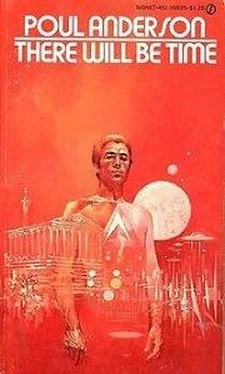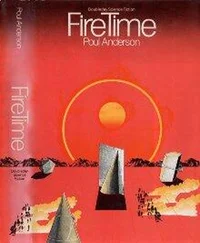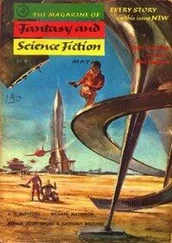Poul Anderson - There Will Be Time
Здесь есть возможность читать онлайн «Poul Anderson - There Will Be Time» весь текст электронной книги совершенно бесплатно (целиком полную версию без сокращений). В некоторых случаях можно слушать аудио, скачать через торрент в формате fb2 и присутствует краткое содержание. Год выпуска: 1972, Издательство: Doubleday, Жанр: Фантастика и фэнтези, на английском языке. Описание произведения, (предисловие) а так же отзывы посетителей доступны на портале библиотеки ЛибКат.
- Название:There Will Be Time
- Автор:
- Издательство:Doubleday
- Жанр:
- Год:1972
- ISBN:нет данных
- Рейтинг книги:5 / 5. Голосов: 1
-
Избранное:Добавить в избранное
- Отзывы:
-
Ваша оценка:
- 100
- 1
- 2
- 3
- 4
- 5
There Will Be Time: краткое содержание, описание и аннотация
Предлагаем к чтению аннотацию, описание, краткое содержание или предисловие (зависит от того, что написал сам автор книги «There Will Be Time»). Если вы не нашли необходимую информацию о книге — напишите в комментариях, мы постараемся отыскать её.
Nominated for Hugo Award for Best Novel in 1973.
There Will Be Time — читать онлайн бесплатно полную книгу (весь текст) целиком
Ниже представлен текст книги, разбитый по страницам. Система сохранения места последней прочитанной страницы, позволяет с удобством читать онлайн бесплатно книгу «There Will Be Time», без необходимости каждый раз заново искать на чём Вы остановились. Поставьте закладку, и сможете в любой момент перейти на страницу, на которой закончили чтение.
Интервал:
Закладка:
“Okay,” Havig said; and: “I love you, Leonce,” he whispered. Her lips winged across his. The band loped to the door of that tower wherein dwelt Caleb Wallis.
It was immovable. The woman cursed: “—Oktai’s tail, I didn’ ’spec’—” Maatuk’s .45 blasted out the lock. The noise smote eardrums and rang between the sleeping walls. A thought flashed through Havig. No combat operation goes perfectly. My studies told me, always allow a margin — But this was the one part of the whole thing where slippage could most readily throw him off the cliff.
He led their way inside. Behind them, he heard a shout. Was it more puzzled than alarmed, or did he delude himself? Never mind. In the entryroom, up the stairs!
Soles clattered on stone. The impact jarred through Havig’s shins, clear to his teeth. Four were at his back, leaping along a dusky skyward spiral. Gutierrez and Bielawski had taken station below, to guard main door and elevator exit. Indhlovu and Chao peeled off on the second and third levels, to capture the apartments of a secretary — Havig didn’t know who he currently was — and Austin Caldwell. And here, next landing, brass-bound, here bulked the portal to Wallis.
That wasn’t secured. Nobody dared enter uninvited, unless they came armed to bring this whole creation down. Havig flung the door wide.
Again he knew wainscoting, furriness, heavy desk and chairs, photographs of masters and mother. The air lay hot and damp. Frost blinded windowpanes, making twilight within. Maatuk whirled about to keep the entrance. Havig and Leonce burst on into the suite beyond.
Wallis surged from a canopied double bed. Havig was flickeringly shocked at how the past several lifespan years had bitten the man. He was quite gray. The face was less red than netted in broken veinlets, and sagged beneath its weight. Horrible, somehow, because of being funny to see, was his nightshirt. He groped for a pistol on an end table.
“Ya-a-a-ah!” Leonce screamed, and launched herself in a flying leap.
Wails vanished from sight. Likewise did she, her fingers upon him. They reappeared, rolling over and over across the floor, wrestling, he unable to flee through time while she gripped him and set her will to stay in the now. Their breath rasped through the shrieks of some commoner girl behind the bed draperies. Havig circled about, in search of a way to help. The grapplers were well matched, and desperate. He saw no opening which wasn’t gone before he could strike.
Gunfire raged in the anteroom.
Havig pelted to the inner door, flattened himself, peered around the jamb. Maatuk sprawled moveless. Above him Austin Caldwell swayed, dripped blood, wheezed air through torn lungs, while his revolver wavered in search of more foe-men. The old Indian fighter must have gotten the drop on Chao, or taken a couple of bullets and slain him anyway, as Maatuk had then been slain — “You’re covered! Surrender!” Havig called.
“Go … to … hell … traitor’s hell …“ The Colt roared anew.
Across years Havig remembered many kindnesses and much grim swallowing of pain at what had seemed to be horrors inescapable in the service of the Sachem. He recalled his own followers, and Xenia. He slipped a minute uptime while he stepped into the doorway, emerged, and fired. His bullet clove air and shattered the glass on Charlemagne’s photograph. Caldwell had crumpled.
Explosions racketed down in the yard, throughout keep and ancillary buildings. Havig hastened back to Leonce. She had gotten legs around Walls’s lower body and thumbs on his carotid arteries. He beat her about the shoulders, but she lowered her head and hung on. His blows turned feeble. They stopped.
“Make him fast,” she panted. “Quick.”
From a pocket Havig drew the set of manacles and chain which were standard equipment for every person of his. Squatting, he linked Wallis to the bedstead.
“He’s not going anywhere,” he said. “Unless somebody comes to release him. You stand guard against that.”
She bridled. “An’ miss the fun?”
“That’s an order!” he snapped. She gave him a mutinous look but obeyed. Their whole plan turned on this prisoner. “I’ll see about getting somebody to spell you, soon’s may be,” he said, adding: When the battle’s over. He left. The concubine had fled, he noticed, and wondered briefly whether she was bereaved or relieved.
On the next level a balcony overlooked the courtyard. Here the Sachem delivered his speeches. Havig stepped forth, into waxing bleak light, and gazed across chaos. Fights ramped between men and knots of men; wounded stirred and groaned, the slain looked shrunken where they lay. Yells and weapon-cracks insulted the sky.
There didn’t seem to be a pattern to anything which happened, only ugliness. He unshipped a pair of binoculars and studied the scene more closely. They let him identify an occasional combatant. Or corpse … yes, Juan Mendoza yonder, and, O Christ, Jerry Jennings, whom he’d hoped could be saved — A new squadron of his army blinked into normal time and deployed. And suddenly parachutes bloomed overhead, as those who had leaped out of a twentieth-century airplane, each with his chronolog, entered this day.
The confusion was more in seeming than truth. From the start, Wallis’s on-duty garrison, most of them commoners, was nearly matched in numbers by a group of their traveler associates — who had been here for years and had quietly avoided drinking themselves befuddled last night. The fifth column was invented long before Havig was born; but his generation saw the unmerciful peak of its development and use.
Given it, and information carried forth by its members, and that precise timing which the chronolog made possible, and plans hammered out by a team which included professional soldiers, tested and rehearsed over and over on a mockup of the Eyrie itself … given this, Havig’s victory was inevitable.
What counted was to minimize the number of agents who, seeing their disaster, would escape before they could be killed or secured. Of secondary importance in theory, but equal in Havig’s breast, was to minimize casualties. On both sides.
He let the binoculars dangle loose, took a walkie-talkie radio off his shoulder, and began calling his squadron leaders.
“Between surprise and efficiency,” he told me, “we didn’t lose many who time-hopped. Some of those we collared ‘later.’ Knowing from the registers who they were, we could make fairly good guesses at where — when they’d head for. It wouldn’t be a random flight, you see. A man would have to seek a milieu where he might survive by himself. That didn’t give too wide a choice.”
“You didn’t net the entire lot?” I fretted.
“No, not quite. We could scarcely hope for that.”
“I should think even one, prowling loose, is too many. He can slip back uptime, though pastward of your attack, and warn—”
“That never worried me, Doc. I knew nobody ever has, therefore nobody ever will. Not that that can’t be explained in ordinary human terms, quite apart from physics or metaphysics…
“Look, these were none of them supermen. In fact, they were either weaklings who’d been assigned civilian-type jobs, or warriors as ignorant and superstitious as brutal. Aside from what specialized training fitted them for Wallis’s purposes, he’d never tried to get them properly educated. If nothing else, that might have led to questioning of his righteousness and infallibility.
“Therefore, those who did escape had their morale pretty well shattered. Their main concern must be to stay hidden from us. And if they thought about the possibility of returning, they’d realize that we’d have agents of our own planted throughout the period of Wallis’s reign, just a few but enough to keep a lookout for them and hustle them away before any warning could be delivered.” Havig chuckled. “I was surprised myself, when first I learned who some of those people would be. Reuel Orrick, the old carnival charlatan … Boris, the monk who went to Jerusalem …”
Читать дальшеИнтервал:
Закладка:
Похожие книги на «There Will Be Time»
Представляем Вашему вниманию похожие книги на «There Will Be Time» списком для выбора. Мы отобрали схожую по названию и смыслу литературу в надежде предоставить читателям больше вариантов отыскать новые, интересные, ещё непрочитанные произведения.
Обсуждение, отзывы о книге «There Will Be Time» и просто собственные мнения читателей. Оставьте ваши комментарии, напишите, что Вы думаете о произведении, его смысле или главных героях. Укажите что конкретно понравилось, а что нет, и почему Вы так считаете.












